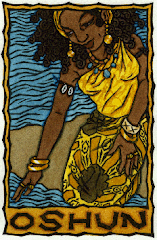My good friend Marc Herold just sent me this fascinating article from
nextbook.org :
Piecing together the lives of women caught up in the white slave trade
Interview by Sara Ivry Today, reports abound about women from Nigeria, Thailand, or Albania working as prostitutes abroad. But international sex-trafficking is nothing new. Between 1860 and 1940, Jews were ensnared in what was known as the "white slave trade." A network of pimps and conmen lured girls and young women from Eastern Europe to South America with promises of love and work. There, these women found themselves in cities such as Rio de Janeiro, without families, friends, or language skills. In
Bodies and Souls, Isabel Vincent pieces together the biographies of three Jewish women forced into prostitution in the New World and examines the history of the Society for Truth, a mutual aid and burial society these outcasts founded as an alternative to the community that rejected them. Formerly based in Canada, Vincent now lives in Brazil. She is a newspaper reporter and author of
Hitler's Silent Partners: Swiss Banks, Nazi Gold, And The Pursuit Of Justice....
How did these women come to form the Society for Truth?In 1916, they pooled their resources and bought a plot of land. They had it officially designated as a cemetery. That was the founding principle, because the women who were dying of yellow fever and of venereal disease were being tossed aside in some city cemetery without a proper religious ceremony. These women didn't want to die like that. They organized their burial society earlier than the Jewish community in Rio, and there was a lot of animosity from the upstanding Jews of Rio, that these women would be able to do it first.
Then it became more ambitious. The women wanted to be able to advance each other money to send each other back to Poland or Romania or Russia if they wanted to spend their last years there. They would pay for hospital stays. I think it grew too ambitious, and when the women started dying off in the 1960s and 1970s, the whole thing disappeared. There was nobody left to support it.
These once penniless women had sufficient resources to front money for passage to Europe?They were very strict about collecting dues every month, about the operation of the society. That became the most important thing in their lives. You see it in all of the minutes. It's amazing. In 1942, they buy a building for cash in downtown Rio. Some of these women went on to become quite serious madams who had more than one brothel and several women, not necessarily Jewish, working for them.
It sounds proto-feminist.Well, they were trying to seize control of their own destiny. Most women were not able to—most women in South America were not able to vote until much later. I don't think they looked at it in political terms. They just did it out of desperation and the need to survive—and the need to survive
spiritually, which I found very moving: that everything else can go wrong and they can be working in a brothel, but they wanted to be Jewish, and they wanted to hold on to some kind of dignity and faith. For them, unfortunately, that meant death, when they felt they could return to what they were....
Can you tell me a bit more what so captivated you about this chapter of history?First of all, I'm a journalist. Secondly, I really feel for these women, I'm amazed at what they did. If you see the cemetery and you stand there with the sun beating down, you think, "Oh, my God, how did they end up here from Eastern Europe so long ago?" It's a sad story. But it's also a powerful story, that they banded together and created a cemetery so they could die with dignity. It transcends religion. It becomes this universal quest for meaning and dignity, and dying with a clean soul. I'm not very religious, but I was very moved by their story.
Read the interview in full here










